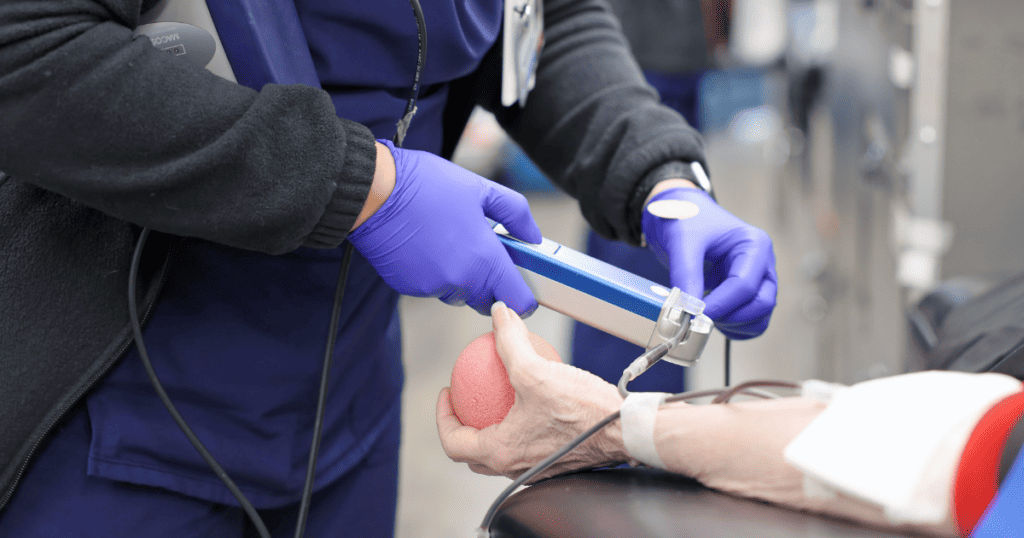8 Tips to Help Avoid Heat-Related Injuries with Williamson Health Emergency Department
Published: July 12, 2024
If you suspect someone might be suffering from a heat-related injury, call 911 and seek medical attention.
Summer in Middle Tennessee brings many fun outdoor activities, but it can also be the cause of a variety of heat-related injuries from heat stroke to sunburn if you’re not careful. Here are eight tips from the folks with Williamson Health’s Emergency Department to help keep you safe from heat-related injuries.
Stay Hydrated
Drink plenty of water, even if you don’t feel thirsty. The most important thing you can do during extreme heat is to stay hydrated. Avoid alcohol and caffeine, which can dehydrate you.
Dress Appropriately
Wear lightweight, loose-fitting clothing that is light in color. This can help keep you cool and protect you from the sun’s harmful UV rays.
Stay Indoors When You Can
Try to stay indoors during the hottest part of the day, usually between 10 a.m. and 4 p.m. If you must be outside, take frequent breaks in the shade or indoors.
Use Sunscreen
Apply sunscreen with an SPF of at least 30 to protect your skin from the sun’s harmful rays. Reapply sunscreen every two hours, or more often if you are sweating or in the water.
Use Fans And Air Conditioning
If you have access to air conditioning, use it to stay cool. If you don’t have access to air conditioning, use fans to circulate air and cool down your living space.
Avoid Strenuous Activity
Avoid strenuous activity during the hottest part of the day. If you must exercise, do it in the early morning or late evening when it’s cooler.
Check On Vulnerable Individuals
Check on elderly or vulnerable individuals, such as those with chronic medical conditions or young children, to make sure they are staying cool and hydrated.
Know The Signs Of Heat Injury
Learn the symptoms of heat exhaustion and heat stroke and know when to seek medical attention. Symptoms of heat exhaustion include heavy sweating, weakness, dizziness, headache and nausea. Symptoms of heat stroke include hot, dry skin, confusion, seizures and loss of consciousness.
8 Tips to Help Avoid Heat-Related Injuries with Williamson Health Emergency Department
If you suspect someone might be suffering from a heat-related injury, call 911 and seek medical attention.
Summer in Middle Tennessee brings many fun outdoor activities, but it can also be the cause of a variety of heat-related injuries from heat stroke to sunburn if you’re not careful. Here are eight tips from the folks with Williamson Health’s Emergency Department to help keep you safe from heat-related injuries.
Stay Hydrated
Drink plenty of water, even if you don’t feel thirsty. The most important thing you can do during extreme heat is to stay hydrated. Avoid alcohol and caffeine, which can dehydrate you.
Dress Appropriately
Wear lightweight, loose-fitting clothing that is light in color. This can help keep you cool and protect you from the sun’s harmful UV rays.
Stay Indoors When You Can
Try to stay indoors during the hottest part of the day, usually between 10 a.m. and 4 p.m. If you must be outside, take frequent breaks in the shade or indoors.
Use Sunscreen
Apply sunscreen with an SPF of at least 30 to protect your skin from the sun’s harmful rays. Reapply sunscreen every two hours, or more often if you are sweating or in the water.
Use Fans And Air Conditioning
If you have access to air conditioning, use it to stay cool. If you don’t have access to air conditioning, use fans to circulate air and cool down your living space.
Avoid Strenuous Activity
Avoid strenuous activity during the hottest part of the day. If you must exercise, do it in the early morning or late evening when it’s cooler.
Check On Vulnerable Individuals
Check on elderly or vulnerable individuals, such as those with chronic medical conditions or young children, to make sure they are staying cool and hydrated.
Know The Signs Of Heat Injury
Learn the symptoms of heat exhaustion and heat stroke and know when to seek medical attention. Symptoms of heat exhaustion include heavy sweating, weakness, dizziness, headache and nausea. Symptoms of heat stroke include hot, dry skin, confusion, seizures and loss of consciousness.
Published: July 12, 2024










